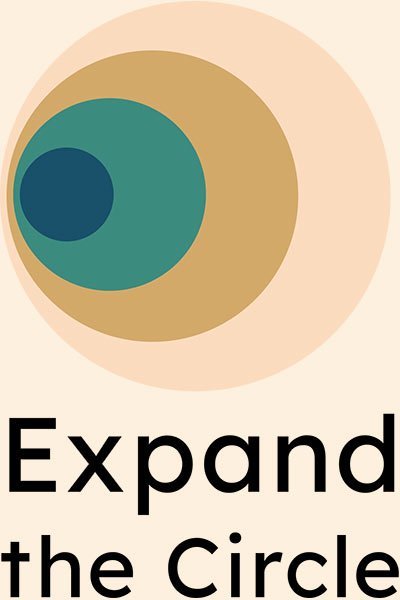How to Make your Panel Event Neuroinclusive for Speakers
Since founding Expand the Circle, I’ve participated in many online and in-person panel events. Some have gone better, some have gone not so well. The key thing though is that I know understand what makes a panel event a great experience for me (and therefore for the audience, as they can see the better version of me!). Here I share my top three recommendations on how to make your panel event neuroinclusive for neurodivergent speakers, based on my own experience.
1. Increase familiarity
You can do this by giving your panel speakers an opportunity to meet beforehand (for example at a technical check).
For an autistic person like me, meeting other speakers before the event reduces the uncertainty of what will happen on the day. That’s because it allows me to create a mental image of the other panellists.
For the event and its success, having speakers meet beforehand will make it flow more naturally as some chemistry between speakers will have been created. I've experienced this several times now and noticed a huge difference, in both how comfortable I felt and audience feedback (compared to only meeting other panellists on the day).
2. Create order
You can do this by setting out panel order in advance and agreeing on how speakers can signal when they wish to contribute out of their turn.
On one virtual panel, I was caught off-guard by another panellist who jumped in with their thoughts on a question I was in the middle of answering. I said most (but not all) of what I wished to say, paused to form my next thought, and that's when they interrupted me to add their thoughts. Because it was unexpected, it left me feeling confused and disorientated. I somehow managed to recover myself (as best as I could) and added the last point after the other speaker had finished.
3. Allow processing time
You can do this by allowing panel speakers to say “pass” or ”more time” if they don't want to answer an unrehearsed question or need more time.
I experienced this at Autscape, a conference and retreat by and for autistic people, and felt it worked beautifully. I was part of a panel of three – all panel participants were autistic and the vast majority of the audience was autistic too. Questions from the audience were flowing and at one point I got 'stuck'. The chair suggested that I answer the question, but I needed more time to process the question and formulate a response. Before I fully became aware of it, another panellist noticed it and asked me: “would you like more time to process? If so, I can answer this question first and then we'll come back to you”. And that's exactly what happened.
I feel there are two major benefits to this approach: one that it honours the need for longer processing time (and normalises it) and two that it generates better, more thought-out responses.
Want to know more recommendations? When you book me as a neurodiversity speaker, I will give you a complete list of adjustments that will help support me as an autistic speaker and as a result will support the overall success of your event.
About the Author:
Alicja Nocon is the founder of Expand the Circle. Her mission is to empower late-diagnosed neurodivergent adults to contribute in the workplace on their own terms and for it to make business sense.
Alicja offers coaching and mentoring for neurodivergent adults and neurodivergent employees with autism or ADHD, neurodiversity training for organisations and enjoys speaking at panels and other events.
Related topics:


